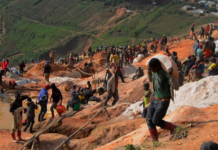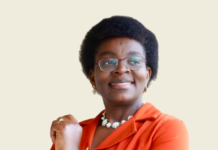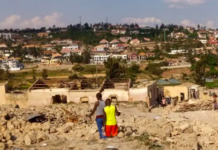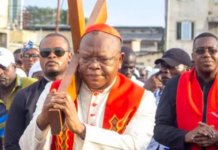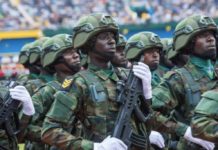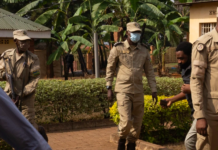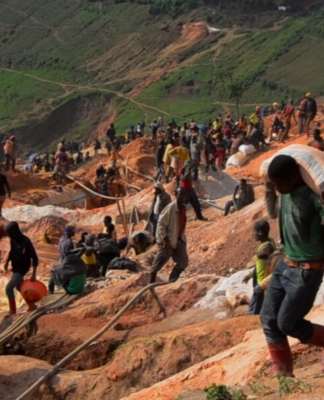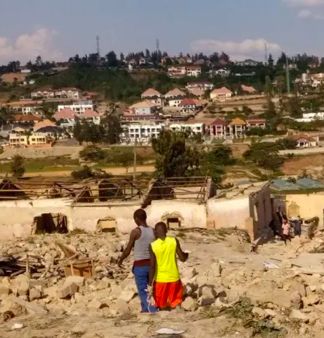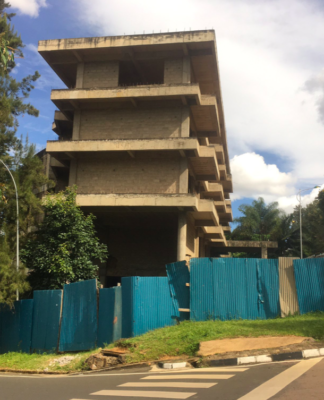Paul Kagame, Rwanda’s president, is an enigmatic figure who has had a complicated relationship with the United States, as articulated in an article by Steve Clemons of Semafor. Kagame’s stance toward the U.S. seems to have deteriorated further due to their perceived hypocrisy and emphasis on mineral interests over democratic values in Africa.
In his interview, Kagame criticizes the United States for what he views as an enigmatic and hypocritical stance towards Rwanda and its regional interests. Kagame asserts that the U.S. favors the Democratic Republic of Congo (DRC) over Rwanda, primarily because of the DRC’s rich mineral assets. The U.S. calls for democratic values appear to Kagame as a “joke,” especially when the U.S. seems to prioritize its geopolitical and economic interests over actual democratic practice.
However, Kagame’s disapproval of American policy can be seen as deflecting attention from his own questionable human rights record. Rwanda under Kagame has been implicated in numerous human rights abuses, including suppression of free speech, arbitrary arrests, and extrajudicial killings. These actions contradict the very democratic ideals Kagame claims the U.S. is failing to uphold. Rwanda’s governance closely resembles a “Potemkin village,” where appearances are maintained at the cost of genuine democratic practice.
As for Kagame’s own stance on the DRC, he argues that his country is falsely accused of supporting armed groups like the M23 rebels. He emphasizes that DRC’s internal conflict and its support for the forces from the previous genocidal regime in Rwanda poses a real threat to his nation’s security. However, a UN report contradicts Kagame’s claims by providing evidence of Rwandan military interventions in the DRC, including support for M23 fighters, which are known for human rights abuses.
The complex relationship between the U.S. and Rwanda is further exemplified by the Paul Rusesabagina case. The arrest and subsequent release of Rusesabagina, the man whose story inspired the film Hotel Rwanda, seemed like a important moment for Rwanda-U.S. relations. Kagame expressed that the U.S. sanctions on one of his top generals after the release of Rusesabagina have complicated the relationship again, and further cemented his belief that the U.S. is not a trustworthy ally.
Kagame employs sophisticated public relations techniques, including the use of robots for crowd control and manipulation of statistical data to paint a rosy picture of Rwanda’s development. These methods, while effective in manipulating international perception, are at odds with the ground reality and the democratic deficit in the country.
The U.S. government’s inconsistent stance towards Rwanda, as pointed out by Kagame, could be indicative of its own internal conflicts between stated values and actual geopolitical interests. For instance, the U.S. State Department has denounced the Rwandan government’s support for M23 while simultaneously implicating DRC’s forces for collaborating with other armed groups.
Kagame’s criticism of the U.S. appears more nuanced when considering Rwanda’s developmental achievements under his leadership. Despite a past marred by genocide, the country has made significant progress in terms of economic growth and social cohesion. However, as Clemons highlights, Rwanda’s success is still fragile and influenced by past ethnic divisions, regional tensions, and an unreliable relationship with global powers like the United States.
While Kagame touts Rwanda’s progress, his regime falls significantly short in terms of democratic governance and human rights, essentially masking these shortcomings with an effective PR strategy and inflated statistics. The real tragedy lies in the absence of genuine democracy and the ongoing suppression of civil liberties.
As Kagame feels increasingly isolated on the international stage, particularly after the Paul Rusesabagina affair, he seems to be looking for scapegoats. The president’s methodology, which includes a crackdown on political dissent and the utilization of manipulated data to improve his image, reflects a desperate attempt to cling to power.
Paul Kagame’s relationship with the United States is fraught with contradictions and complexities. While Kagame criticizes the U.S. for its focus on mineral wealth over democratic values, his own regime’s human rights abuses and lack of democratic governance can’t be ignored. His attempts to portray Rwanda as a model African nation through sophisticated PR methods only serve to obfuscate the ground realities. Therefore, while the U.S. should indeed align its policies with its democratic principles, Kagame himself needs to do much more to establish his credibility as a leader committed to democracy and human rights.



